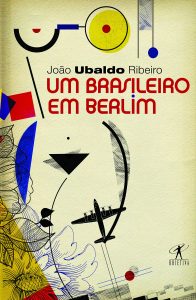It always amazes me how little we “Westerners” usually know about the culture and the history of South-Eastern Europe. And I am saying this even after sixteen years of Balkan experience.
It is therefore always a pleasure to read well-written travel accounts by authors that have the necessary curiosity, education and ability to transfer their knowledge to us readers. A good example is Roumanian Journey by Sacheverell Sitwell (the younger brother of Edith Sitwell, and an early member in Sir Oswald Mosley’s New Party before Mosley turned it into a fascist movement.).
The court ceremonial that Sitwell is describing is truly strange:
„As late as 1818, there is an account by an English traveller of an audience with the reigning prince, at Bucharest, in which he is described as being carried into the room, in the old traditional manner, supported by the arm of a servant under each of his shoulders, as though he were too important a personage to walk. These were the manners and customs of the old Turkish court, or even of the Court of Pekin. It was remarked, too, that the Phanariot princes had no standing army. This was not allowed them. Their state consisted in a multiplicity of servants, and in a few heyducks or Albanians gorgeously arrayed. I am even told, by Prince Matila Ghyka, that a Phanariot Prince, of the Mavrojeni family, made his official entry into Bucharest riding in a sledge drawn by a pair of stags with gilded antlers.”
A classical book – the first edition appeared in 1938 – that belongs in each library of anyone with an interest in South-East European history and culture; and for readers of travel books as well. The edition I read has a foreword by Patrick Leigh Fermor, another expert on Romania. Travel literature at its best, until about ten pages to the end when the author is revealing his anti-Semitism.
If it was not for the more than doubtful remarks about the “Jewish problem” that made me cringe, this book would be one of the very best in this genre. As it is, it is still a great read – with the mentioned restriction.

Sacheverell Sitwell: Roumanian Journey, with an introduction by Patrick Leigh Fermor, Oxford University Press, Oxford New York 1992
© Thomas Hübner and mytwostotinki.com, 2014-6. Unauthorized use and/or duplication of this material without expressed and written permission from this blog’s author and/or owner is strictly prohibited. Excerpts and links may be used, provided that full and clear credit is given to Thomas Hübner and mytwostotinki.com with appropriate and specific direction to the original content.





 Facebook
Facebook RSS
RSS Twitter
Twitter